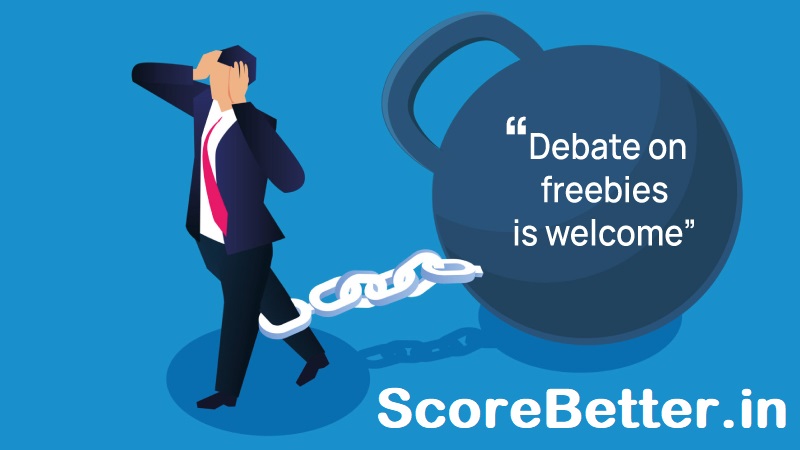While hearing a petition demanding the derecognition of political parties that promise “irrational freebies’‘ to voters, the Supreme Court recently called for a balance between welfare measures and loss to the public exchequer.
Freebies and welfare:
- Free electricity, free water, free public transportation, waiver of pending utility bills, and farm loan waivers are often regarded as freebies
- They potentially undermine credit culture, distort prices through cross-subsidization eroding incentives for private investment, and disincentive work at the current wage rate leading to a drop in labour force participation
- Welfare: Expenditure which brings economic benefits, such as the public distribution system, employment guarantee schemes, and states’ support for education and health.
Is India spending too much on welfare or freebies?
- Declining spending on the social sector: Studies, especially by the Reserve Bank of India (Study on State Finances), have shown that from 2014 onwards, the social sector expenditure at the State level has been declining even after States were given more resources.
- Health and education: The allocation to the health and education sectors by the States is declining.
- The Reserve Bank of India report: two months ago brought to light the fiscal situation of the States.
- At least five States are going to see fiscal pressure.
- Low spending on welfare schemes: Welfare spending in India is woefully low.
- It is low in comparison to other developing countries – some years ago, public spending on health and education was 4.7% in India, compared to 7% in sub-Saharan Africa.

Solution of Freebies Schemes
- Spend more on welfare schemes: There is a need to spend more resources on welfare schemes
- There’s a need to keep track of allocations to the social sector.
- Public expenditure efficiency: At the same time, it is high time we started talking about public expenditure efficiency in this country.
- Better resources: We need to have a good tax framework, where you have much better resources for more social sector expenditure while also ensuring medium-term debt sustainability.
Comparison with Sri Lanka:
- Public debt stock: Fiscal crises happen not because of the fiscal deficit of any particular year, but due to the public debt stock that is accumulating over a period of time.
- Other factors: The fiscal situation there was not triggered by welfare spending alone
- There are many other things happening there which led to the crisis.
How to raise taxes and engage in greater redistribution:
- Reduce Indirect taxes (Goods and Services Tax)
- Increase Non-tax revenues
- Wealth tax: Levy a one-time 4% wealth tax on the wealthy, and we can get revenues worth 1% of GDP.
- Property tax: Similarly, we are raising 2% of GDP through property tax, whereas the developing country average is 0.6% of GDP and in OECD countries it is 2% of GDP.
- So again, there is great scope to raise revenues.

Supreme Court’s suggestion on Freebies:
- Balance welfare spending and our fiscal concerns: The court has mentioned the need to balance welfare spending and our fiscal concerns.
- Social sector expenditure: The implicit subsidies can be reduced so that we have more resources for welfare or social sector expenditure.
Conclusion:
There is a need to identify the policies that have a long-term impact. At the same time, there is a need to identify the beneficiary sets.
.
Read More Article on Current Affairs
Follow on Youtube – Score Better
Join Us on Telegram For More Updates
.
